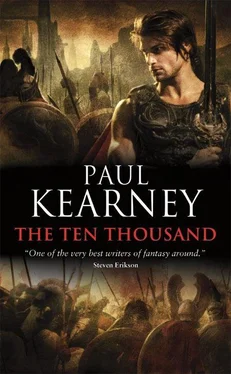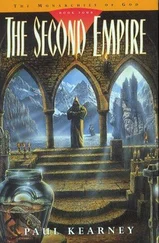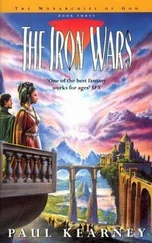Paul Kearney - The ten thousand
Здесь есть возможность читать онлайн «Paul Kearney - The ten thousand» весь текст электронной книги совершенно бесплатно (целиком полную версию без сокращений). В некоторых случаях можно слушать аудио, скачать через торрент в формате fb2 и присутствует краткое содержание. Жанр: Фэнтези, на английском языке. Описание произведения, (предисловие) а так же отзывы посетителей доступны на портале библиотеки ЛибКат.
- Название:The ten thousand
- Автор:
- Жанр:
- Год:неизвестен
- ISBN:нет данных
- Рейтинг книги:5 / 5. Голосов: 1
-
Избранное:Добавить в избранное
- Отзывы:
-
Ваша оценка:
- 100
- 1
- 2
- 3
- 4
- 5
The ten thousand: краткое содержание, описание и аннотация
Предлагаем к чтению аннотацию, описание, краткое содержание или предисловие (зависит от того, что написал сам автор книги «The ten thousand»). Если вы не нашли необходимую информацию о книге — напишите в комментариях, мы постараемся отыскать её.
The ten thousand — читать онлайн бесплатно полную книгу (весь текст) целиком
Ниже представлен текст книги, разбитый по страницам. Система сохранения места последней прочитанной страницы, позволяет с удобством читать онлайн бесплатно книгу «The ten thousand», без необходимости каждый раз заново искать на чём Вы остановились. Поставьте закладку, и сможете в любой момент перейти на страницу, на которой закончили чтение.
Интервал:
Закладка:
As for the rest, there was a remnant of the Honai, which Vorus kept as his reserve and commanded himself; the hufsan levies, still intact, though they hated the humid flatness of the lands they were trekking across; and the three Juthan Legions, twelve thousand of the squat, dour-handed warriors under Proxis. Close to fifty thousand warriors, all told. And Vorus had Kefren officers out among the plains cities day and night, conscripting more. He would need them. He would need them all.
He left the column and kicked his unwilling horse into a canter, eating up the ground alongside the marching files. Near the head of the army he found the Juthan contingent, their grey skin tawny with dust, halberds resting on their shoulders, shields slung on their backs. He trotted along their ranks, staring into the lines of squat, dust-caked warriors, as intent as if his eyes could somehow fathom what was travelling through their heads. He almost ran into Proxis, who sat by the side of the road on his slate-coloured mule, watching the legions pass by.
“We’re low on water,” Proxis told him.
“Anaris is ten pasangs away, and there are wells there. We halt before the city for the night.”
“The plains cities have been supplying the Macht with fodder and water, all of them along the road, all of them since the sack of Ab-Mirza.”
“I know.” The knowledge had angered most of the army, and had made relations with the city-governors tetchy. Feeding one army was bad enough, but when a second, five times larger, turned up in the wake of the first, there was not much left to go around.
“Will you punish them?” Proxis asked. “The Great King would wish it so.”
“I will not sack our own cities, not until Ashurnan expressly orders me to do so. They are our people, Proxis.”
“Are they now?” the Juthan said, and a grimace flitted across his broad face. “You’ve heard the rumours from Junnan?”
“I have heard them.” Vorus sat very still in his saddle. He did not look at his old friend, but studied the marching files of Juthan as they marched past. Slave-soldiers, hoping to earn their freedom through service in war; as Proxis had done twenty years before, saving a general’s life on the battlefield. The general had been Vorus.
“It may be that once the Macht are destroyed you will have to move on to the Juthan,” Proxis said.
“Many things may happen,” Vorus said stiffly. “We cannot foresee all of them. We can only keep putting one foot in front of the other.” If the rumours were true, then the Juthan had risen in open rebellion, and the entire ancient province of Jutha was lost to the Empire. The slave-race had rediscovered their pride at last, and from the Gadinai Desert to the Jurid River they had expelled all Imperial garrisons, even those rebel ones Arkamenes had installed in his passage though the province. Rumours of battles, of bloodshed on a massive scale. The Empire was creaking on its foundations.
“You have always been my friend,” Proxis said. “You made me free.”
“You earned your freedom. You saved my life at Carchanis.”
Proxis rubbed his mule’s ears. He seemed about to say something, then stopped. That Juthan reserve came down again. “As you say, we can only keep putting one foot in front of the other.” He swung his mule around and joined the column of Juthan troops, becoming part of that dun coloured crowd of trudging warriors. Vorus watched him go, knowing now that some decision had just been made, and there was nothing he could do about it.
Out of the western horizon, the white-tipped peaks of the Korash Mountains rose now to stand stark against every sunset. This was the province of Hafdaran. At long last, the endless lowlands of the Middle Empire had been left behind. The land grew more broken and rugged, with knots and fists of stone thrusting up through the soil on all sides. Here, the irrigation systems of the plains came to a halt, for the earth was poorer, and the local Kufr grazed herds upon it rather than planting crops. These were hufsan folk in the main, the hill-peoples of the Empire, and they lived in unwalled towns and sprawling villages rather than fortified cities. They herded goats, sheep, upland cattle, and scrub ponies. As the land rose, so the air grew cooler, and the Macht found themselves able to breathe a little easier. The wind came off the mountains in dry waves, flattening the upland grass and reminding them of their homeland. To the thousands of marching men, it seemed that they must be drawing closer to journey’s end, though those who had some notion of geography knew this to be wishful thinking. As the crows flew, it was still twelve hundred pasangs to Sinon.
The fortress-city of Irunshahr rose up on a spur of outlying rock from one of the lower Korash peaks. It overlooked the Irun Gates, the only way through the mountains to the wide lands of the Outer Empire beyond. Within sight of the city the Macht halted, set up camp, and sent out foraging parties to scour the land around for anything four-footed which might be put in the pot. To their rear, Jason posted the morai of Aristos and Mynon to keep an eye on the pursuing Kufr army. They had marched over a thousand pasangs in the last five weeks, following the Imperial Road as if it had been constructed to speed their passage out of the Empire. In the lowlands it was summer now, while up here in the hills the gorse was in full blossom, and there were bees by the million crawling around the heather-strewn slopes and amid the rocks. Overhead, the great raptors of the Korash foothills circled endlessly, wide-winged sentinels of the mountains.
“This is good ground,” Jason said. All the generals of the army were clustered about him on the hillside, leaning on their spears.
“This is where we fight. We have two days before the enemy comes up. I want a position prepared here, where the hills break up into stone. We will place our line along these heights and let him come to us. If we break up his army here, he will take a long time to reorganise, and we will use that time to get through the mountains.” Jason paused and looked his companions up and down.
“Any thoughts, brothers?”
Mynon spoke up. “The city has closed its gates behind us. We’ll need to watch our rear. Irunshahr has a garrison; they may well sortie out in the middle of the battle, just to annoy us.”
“Agreed. Aristos, your mora is to remain to the rear of the main battle line, both as a reserve, and to guard against any mischief. Rictus, your lights will be back there with him, and behind you will be the baggage train. The enemy still has a large force of cavalry. I don’t want your men engaging them, or they’ll get cut up like at Kunaksa. Leave the horse to the spears. Clear?” Rictus nodded. He and Aristos looked at one another for a second. Jason saw the hatred between them, and wondered if he were being a naive fool, making them work together. Even men who loathed each other sometimes found the unlikeliest of likings developing on the battlefield. He hoped it might be so.
“The main body will deploy on this hill south of the road,” Jason went on. “My mora will be on the extreme left, next to the road. Mochran, you will be the right-most mora. Watch your flank; there’s nothing beyond your right but grass and stones. Every mora is to keep one full centon to the rear of its line, as a reserve. No one breaks rank without orders, not even if their entire army turns and runs. Don’t forget their cavalry. We lose formation, and they’ll hunt us down one by one. Tonight we sleep in camp, everyone eats a good meal, and we sleep like babies. In the morning we take up our positions, wait for the Kufr to come to us, and with luck they’ll soon be crying like babies.” There was a rustle of laughter, an echo of fellowship.
Читать дальшеИнтервал:
Закладка:
Похожие книги на «The ten thousand»
Представляем Вашему вниманию похожие книги на «The ten thousand» списком для выбора. Мы отобрали схожую по названию и смыслу литературу в надежде предоставить читателям больше вариантов отыскать новые, интересные, ещё непрочитанные произведения.
Обсуждение, отзывы о книге «The ten thousand» и просто собственные мнения читателей. Оставьте ваши комментарии, напишите, что Вы думаете о произведении, его смысле или главных героях. Укажите что конкретно понравилось, а что нет, и почему Вы так считаете.












